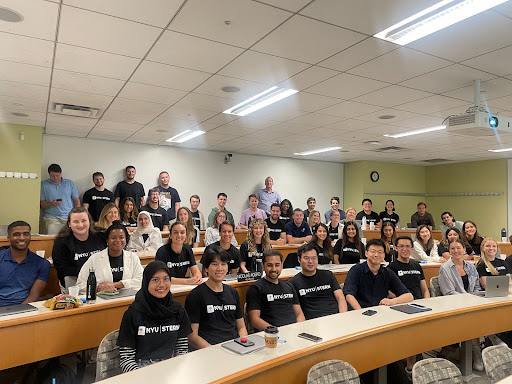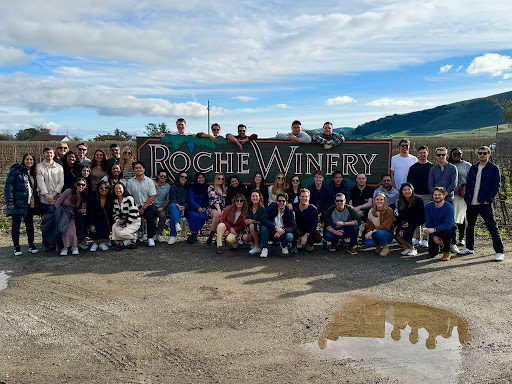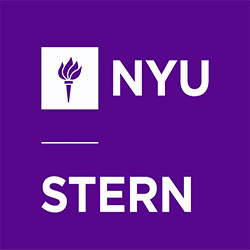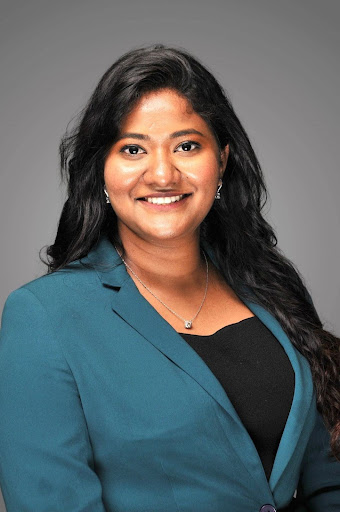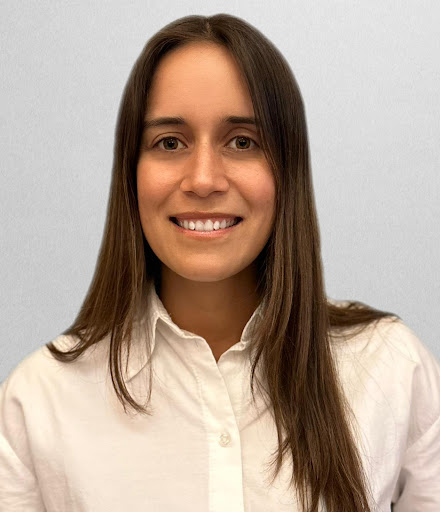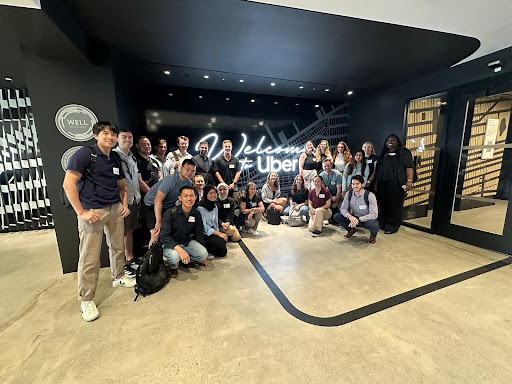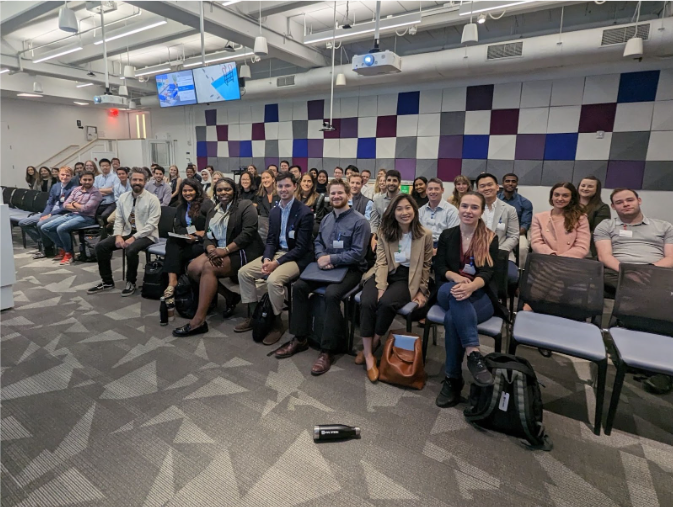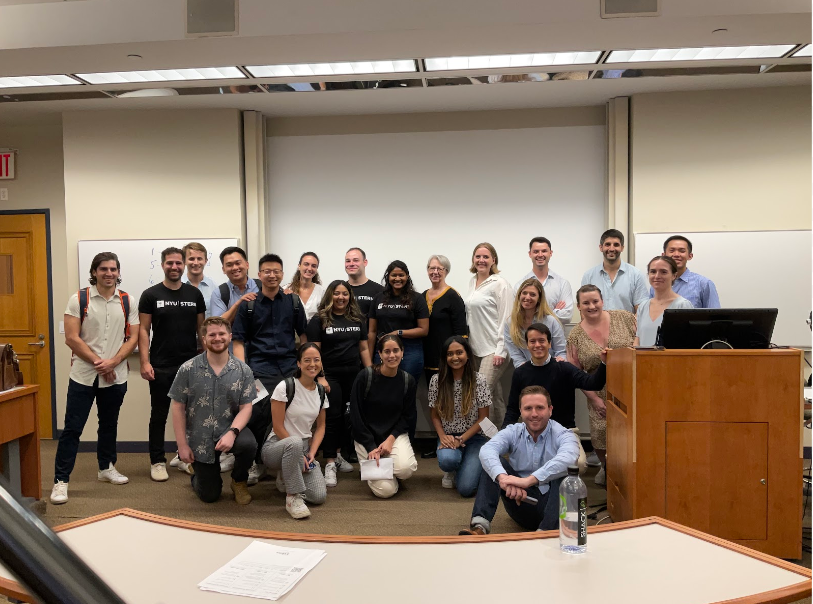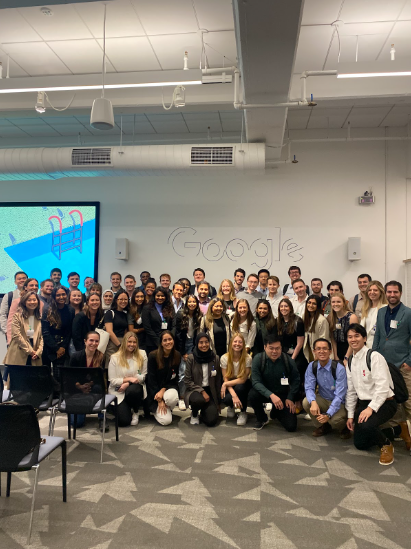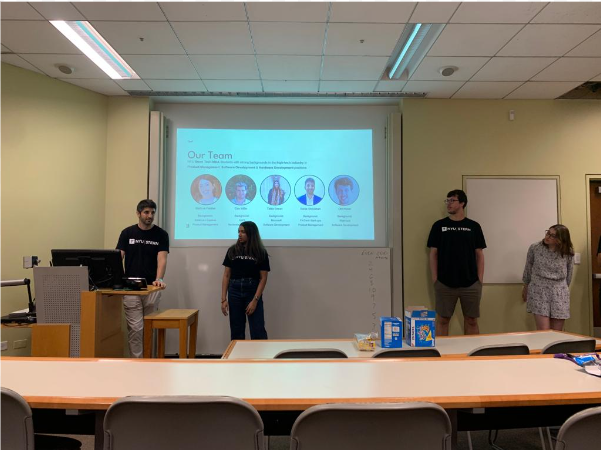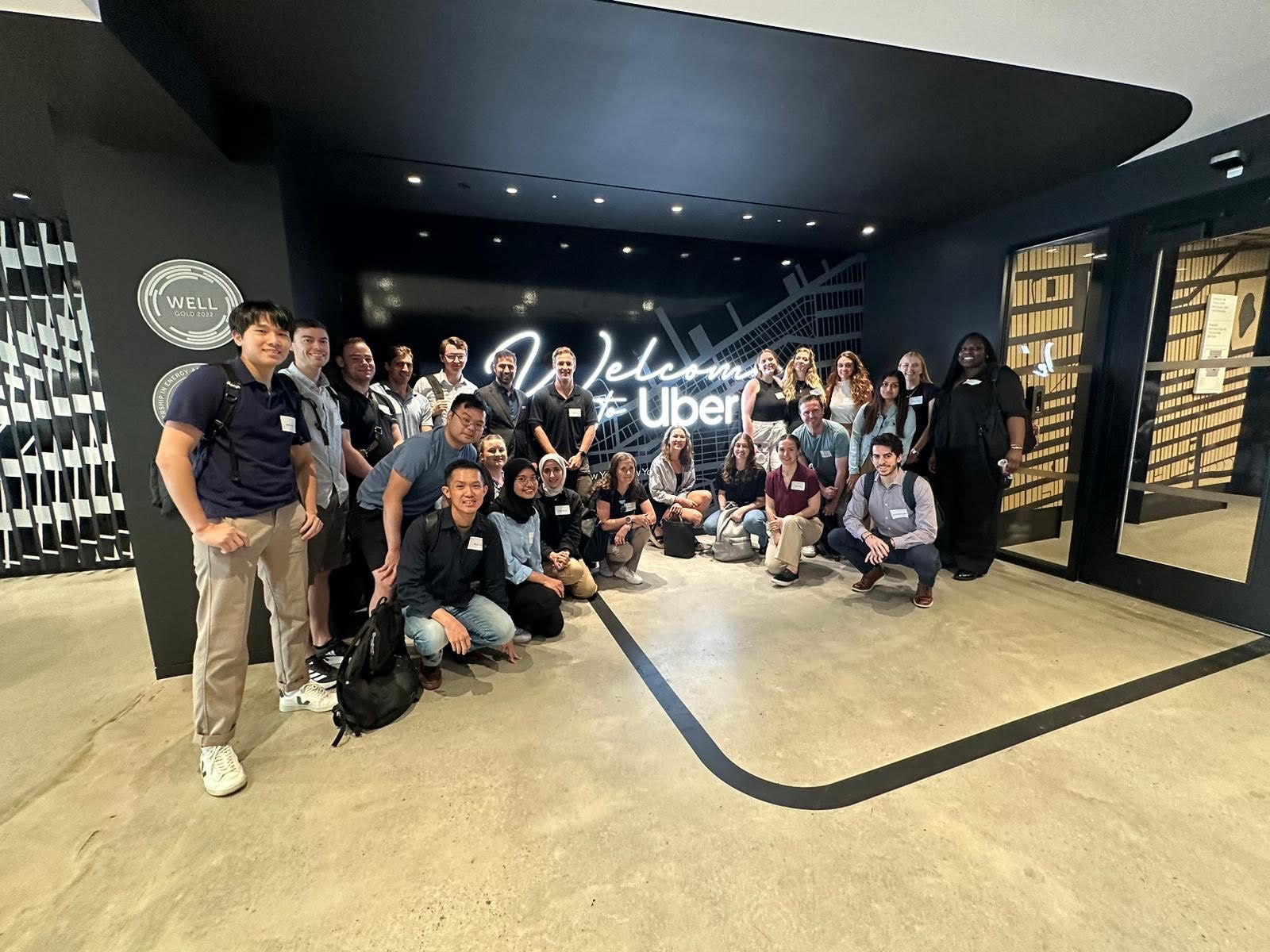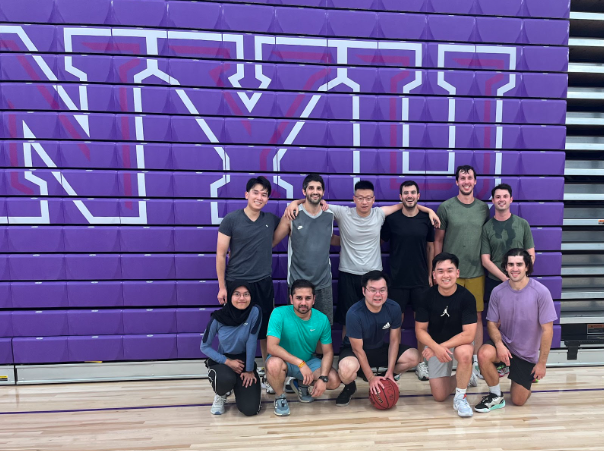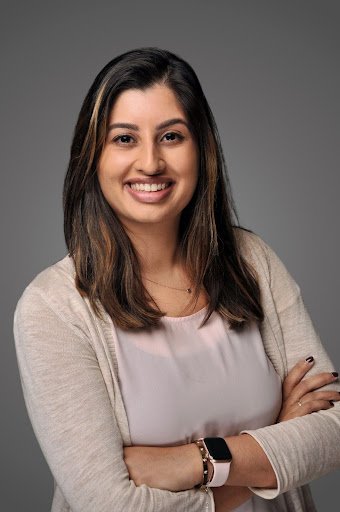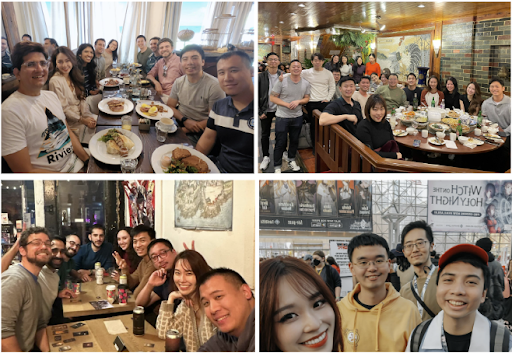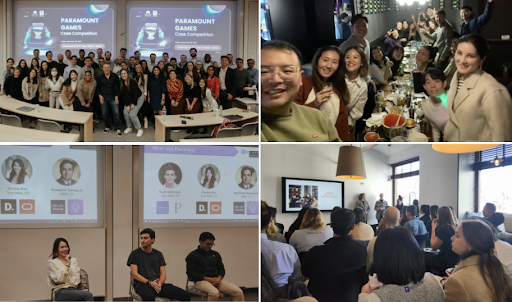Author: Sushmita is a current MBA student at Stern, specializing in Product Management, Strategy, Leadership, and Change Management. Prior to Stern, she worked as a Machine Learning Engineer at JP Morgan Chase and in the technology sector. Post-MBA, she plans to pursue Product Management in the tech industry with a focus on AI/ML. At Stern, Sushmita is actively involved in the Stern Technology Association, Student Government, FinTech Association, South Asian Business Association Society, and Entertainment Media and Sports Association.
The NYU Tech MBA program offers three experiential learning programs each semester: NYC Immersion in the summer, Tech Solutions in the fall, and West Coast Immersion in the winter.
These programs are an essential part of the curriculum, each designed with its own suite of experiential learning opportunities to immerse students in the tech industry and solve real-world problems.
Throughout my journey in the Experiential courses, I’ve had the privilege of engaging with innovative companies, tackling real-world challenges, and expanding my network across the vibrant tech scenes of both the West Coast and NYC. It has been an incredible learning experience that has enabled me to enhance my skills, gain invaluable insights, face challenges head-on, and discover new aspects of myself both personally and professionally.
Join me as I share my personal account of this transformative journey, from the excitement of the West Coast Tech Immersion to the unique opportunities and learnings gained in the heart of NYC’s tech scene.
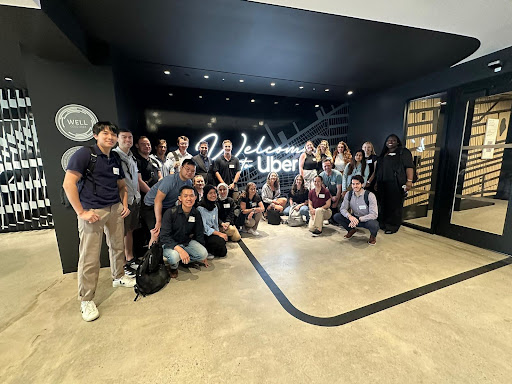
During the NYC Immersion, our close-knit cohort of 51 was divided into two groups: one group worked with Salesforce, while the other collaborated with Sprinklr. Both groups focused on creating solutions to solve common issues in the customer relationship management industry. I had the opportunity to work with Sprinklr. This experience highlighted the importance of a consultative approach in the CXM industry. It provided me with a deeper understanding of the CXM landscape and the strategies employed by leading companies like Sprinklr to drive success for their clients.
Tech Solutions – Fall
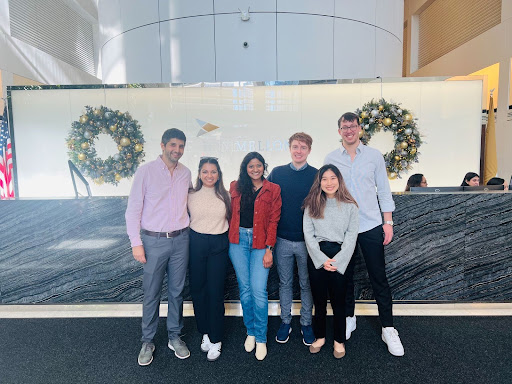
In the fall semester, I gained firsthand experience working within New York City’s diverse community, including my classmates, who brought diverse professional backgrounds to the table. Working with BNY Mellon in the Tech Solutions course was one of my favorite experiences. Every discussion and checkpoint was a learning curve, not only on the business-technology case we were working with but also on collaborating with diverse technology stakeholders. During the project, I had the opportunity to transform user insights into actionable specs, lead weekly cross-functional meetings to integrate go-to-market technologies across engineering, design, and sales teams, present to senior leadership, and benchmark product market demand. Collaborating with a Product team in the New York office and a tech team in India was an eye-opening experience. It was incredibly rewarding to see the tech team implement our solution. I gained invaluable insights into real-world applications of business and technology. It emphasized the significance of understanding and addressing the unique needs of different stakeholders within an organization to develop and implement effective technology solutions. Whether you plan to work internationally or stay in the United States, these courses ensure your readiness for any professional environment.
West Coast Immersion – Winter
The West Coast Immersion was one of my best memories of the entire MBA experience.
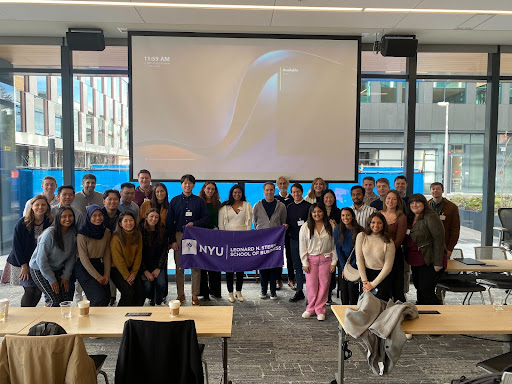
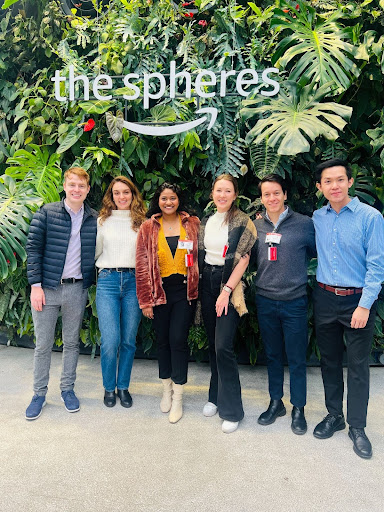
Seattle
One of the most memorable sessions of the entire trip was the one at Microsoft, which provided us with an immersive experience of the Future of Work. Jeff Teper, President of Microsoft 365 Collaborative Apps and Platforms, showcased new features and enhancements for Copilot in Microsoft 365. He guided us through the future workplace at the Microsoft 365 Community, where innovation meets practical application. This pivotal session left us eager to advance our skills in today’s AI-driven work environment. Teper covered the latest developments in Microsoft 365, Copilot, Teams, Viva, and more, offering unparalleled learning, professional development, and networking opportunities. He shared how Microsoft is preparing to transform our approach to work and harness the capabilities of AI at the most anticipated Microsoft community event of the year. The session inspired us to level up and embrace the exciting future ahead!
San Francisco
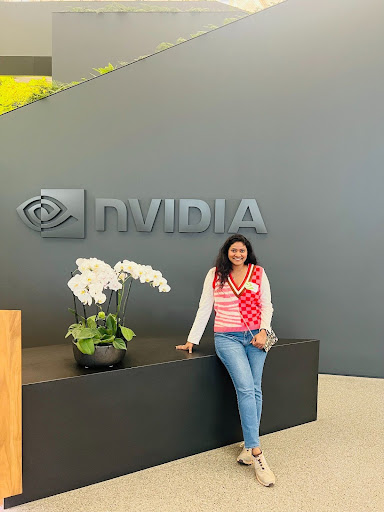
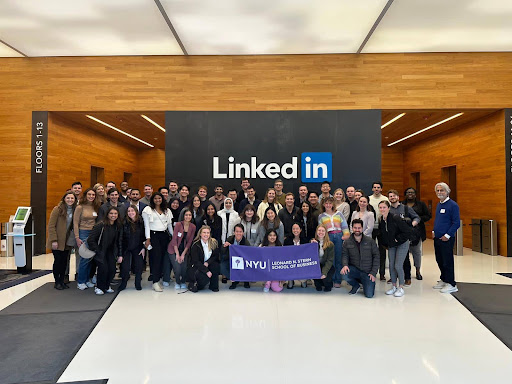
After an intensive week in Seattle visiting major tech companies like Microsoft, Amazon, T-Mobile, and DirectTV, our cohort reunited in San Francisco for another week of company visits. We enjoyed a relaxing weekend exploring the Bay Area and a wine-tasting tour in Napa before diving into a busy schedule featuring visits to Salesforce, Saildrone, Upside Foods, AirBnB, 500 Global, NVIDIA, LinkedIn, and Palantir.
Two of the most memorable visits for me were to NVIDIA and Airbnb. At NVIDIA, I was impressed by the company’s thoughtfully designed campus and the passion and high standards of its employees. Rama Akkiraju, VP for AI for IT, provided in-depth insights into the practical use cases of AI and its role in driving growth at NVIDIA. This experience gave me a deeper understanding of how AI can be leveraged to transform businesses and drive innovation.
At Airbnb, I was rejuvenated by the company’s well-designed building and inspired by the thoughtful and precise approach to work demonstrated by Judson Coplan, VP Product Marketing, and Iain Robert, VP People and Culture. Their insights into creating a strong company culture and delivering exceptional user experiences left a lasting impact on me.
Throughout the trip, professors Melissa Schilling and Vasant Dhar led insightful lectures and discussions on the role of technology in transforming industries and how companies can optimize their positioning. These sessions provided me with a strategic framework to analyze the tech industry and make informed predictions about its future. The trip ended with an intimate talk by Stern alumni and CEO of Calm, David Ko, who provided valuable perspective on career journeys and the importance of being thoughtful about the next step, especially during a time of layoffs in the tech industry. His words of wisdom resonated with me and reinforced the importance of making deliberate career choices aligned with my goals and values.
Through the West Coast Immersion, I learned about the practical use cases of AI, the importance of thoughtful design and high standards, and the role of technology in transforming industries.
NYC vs. West Coast: A Tale of Two Tech Hubs
Having experienced both the New York City and West Coast tech scenes through the NYU Stern Tech MBA program, I can confidently say that each location has its own unique charm and offerings.
New York City, the bustling metropolis, is known for its fast-pace. The city’s tech scene is heavily influenced by industries such as finance, media, and fashion, which results in a focus on leveraging technology to drive innovation and efficiency in these sectors. NYC is home to a diverse range of tech companies, from established giants like Google and Amazon to up-and-coming startups in fintech, adtech, and e-commerce.
In contrast, the West Coast, particularly Silicon Valley, has a more laid-back vibe that fosters a culture of innovation and risk-taking. The region is synonymous with tech giants like Apple, Facebook, and Google, as well as countless startups hoping to become the next big thing. The West Coast tech scene is known for its focus on cutting-edge technologies such as AI, machine learning, and virtual reality, as well as its strong emphasis on entrepreneurship and venture capital.
